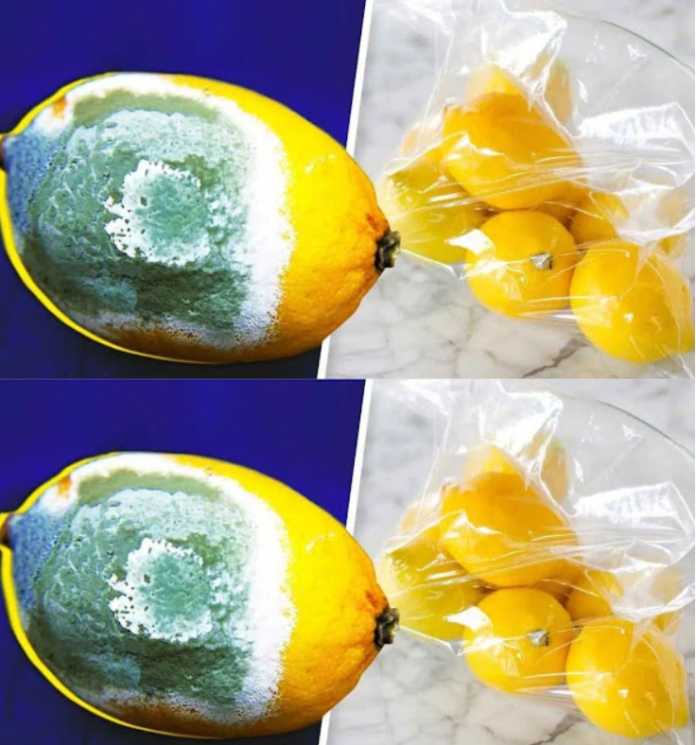Lemons are a staple in many households, valued not only for their vibrant flavor but also for their health benefits. However, without the proper storage, these zesty fruits can quickly turn into a soggy mess. To help you make the most out of your lemons, here are four practical tricks to keep them fresh and prevent spoilage.
1. Lemon Ice Cubes
One effective way to extend the life of your lemons is by turning them into ice cubes. Start by grating the zest and squeezing the juice from your lemons. Pour the zest and juice into ice cube trays and freeze them. Once frozen, transfer the cubes to a silicone bag and store them in the freezer. These lemon cubes are handy for adding a burst of flavor to dishes or beverages whenever you need them.
2. Toothpick Trick
A common mistake is leaving a lemon half exposed to air, causing it to lose its freshness quickly. To keep your lemon halves fresh, stick a few toothpicks between them. This simple trick prevents the cut surfaces from drying out and keeps the lemon ready for use for several days.
3. Lemons in Water
For a straightforward method to preserve whole lemons, place them in a container filled with water, ensuring the lemons are fully submerged. Seal the container and store it in the refrigerator. If you only need to store half a lemon, place the cut side down in a saucer filled with water. This method can significantly extend the lemon’s shelf life by preventing it from drying out and molding.
4. Salty Seasoning Sauce
For a more elaborate preservation technique, you can create a lemon seasoning sauce. Layer sea salt in a baking dish and mix in the zest of five lemons. Add the juice from the lemons and bake at 190°C for about twenty minutes, then reduce the heat to 150°C for another ten minutes. Once cooled, store the mixture in a jar. This lemon sauce is a versatile addition to pasta, salads, and rice dishes, allowing you to enjoy the flavor of lemons long after they are harvested.
Growing Lemons at Home
If you’re interested in growing your own lemons, it’s easier than you might think. Here’s how you can cultivate a lemon tree in a pot:
Ingredients:
- One lemon
- Organic soil
- A suitable pot
- A sunny location
Planting Instructions:
- Fill the pot with soil and moisten it slightly.
- Extract a seed from the lemon, keeping it moist. Make a small hole in the soil and plant the seed.
- Cover the seed with soil and water it gently. Cover the pot with plastic wrap to retain moisture and place it in a sunny spot.
- Avoid overwatering to prevent seed rot. Within one to two weeks, the seed should start to sprout. Once the lemon tree begins to grow, remove the plastic wrap and ensure it receives eight hours of sunlight daily.
With these tips, you can enjoy fresh lemons and even grow your own citrus tree right at home.
Conclusion
By following these simple yet effective tricks, you can greatly extend the shelf life of your lemons, thus reducing waste and maximizing their utility. Freezing lemon zest and juice into ice cubes is a fantastic way to preserve their freshness, allowing you to easily add a burst of citrus flavor to your dishes and drinks whenever you need it. Storing lemons in water is another practical method that keeps them moist and ready to use, minimizing the risk of spoilage. For those who enjoy cooking, creating a lemon seasoning sauce can be a flavorful and convenient way to use up lemons while adding a zesty kick to your meals, such as pasta, salads, and rice dishes.
Moreover, growing your own lemon tree can be an incredibly fulfilling and sustainable endeavor. Not only does it provide you with a continuous supply of fresh lemons, but it also allows you to enjoy the satisfaction of nurturing a plant from seed to fruit-bearing maturity. With the right care and a sunny spot, your lemon tree can thrive, offering you a fresh, organic source of lemons year-round. Embracing these methods ensures that you make the most out of every lemon you purchase, reducing waste and enhancing your culinary experiences. Give these techniques a try and discover how easy it is to keep your lemons fresh and flavorful for longer!
Source of the picture : Barbara O’Neill Lectures










